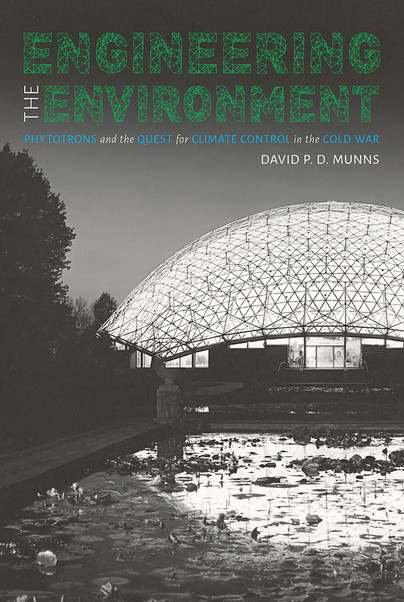Engineering the Environment (Hardback)
Phytotrons and the Quest for Climate Control in the Cold War
Imprint: University of Pittsburgh Press
Pages: 384
ISBN: 9780822944744
Published: 10th May 2017
Script Academic & Professional
Pages: 384
ISBN: 9780822944744
Published: 10th May 2017
Script Academic & Professional
You'll be £45.00 closer to your next £10.00 credit when you purchase Engineering the Environment. What's this?
+£4.99 UK Delivery or free UK delivery if order is over £40
(click here for international delivery rates)
Order within the next 4 hours, 55 minutes to get your order processed the next working day!
Need a currency converter? Check XE.com for live rates
(click here for international delivery rates)
Order within the next 4 hours, 55 minutes to get your order processed the next working day!
Need a currency converter? Check XE.com for live rates
Promising an end to global hunger and political instability, huge climate-controlled laboratories known as phytotrons spread around the world to thirty countries after the Second World War. The United States built nearly a dozen, including the first at Caltech in 1949. Made possible by computers and other novel greenhouse technologies of the early Cold War, phytotrons enabled plant scientists to experiment on the environmental causes of growth and development of living organisms. Subsequently, they turned biologists into technologists who, in their pursuit of knowledge about plants, also set out to master the machines that controlled their environment.Engineering the Environment tells the forgotten story of a research program that revealed the shape of the environment, the limits of growth and development, and the limits of human control over complex technological systems. As support and funding for basic science dwindled in the mid-1960s, phytotrons declined and ultimately disappeared—until, nearly thirty years later, the British built the Ecotron to study the impact of climate change on biological communities. By revisiting this history of phytotrons, David Munns reminds us of the vital role they can play in helping researchers unravel the complexities of natural ecosystems in the Anthropocene.
Other titles in University of Pittsburgh Press...















